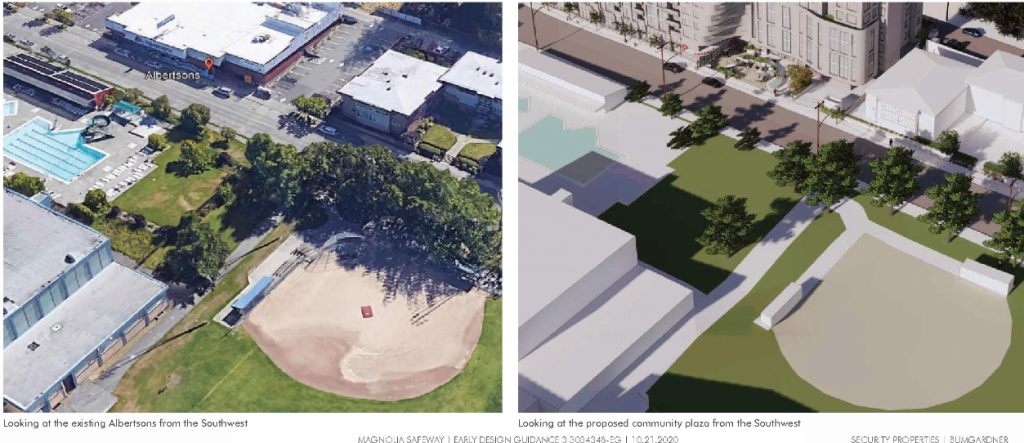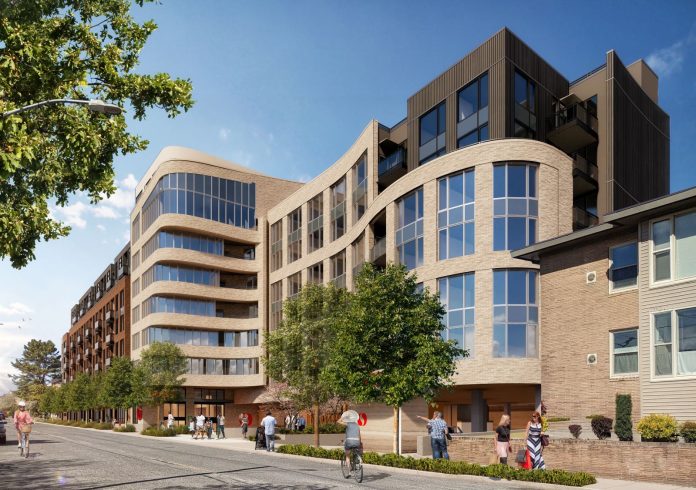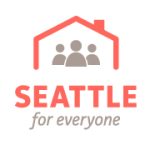The all-volunteer West Design Review Board will hear about a project at 2550 32nd Ave W that would house new neighbors and bring an updated grocery store to the heart of Magnolia. The design review meeting (following a postponement) is scheduled for June 23rd at 5pm. It’s a deep green building that is good for planet earth. Please join us in registering for the City of Seattle public meeting.
What happens in Magnolia does not just impact Magnolia residents. Every green building is a step towards a better future for our whole city. We must do all we can, as soon as we can, for our climate. In our design review advocacy we prioritize green buildings. There are some adjacent neighbors concerned about an extra floor that is allowed under Seattle rules for the wonderful Living Building Challenge which incentivizes deep green construction practices, like rooftop solar panels and high energy efficiency standards. We wish that deep green buildings would receive expedited design review, since they are inherently a community benefit.
We have a dual housing and climate crisis. Meanwhile, Seattle’s design review delays add significant additional design costs, not to mention additional financing risks, that uncertainty injects into a project. Unnecessary design review delays aren’t just happening in Seattle. All those delays and extra costs are causing problems across the country. Henry Grabar recently wrote about this challenge in a Slate article titled “Good Design Is Making Bad Cities, but It Doesn’t Have To” highlighting the work of the Sightline Institute and quoting their housing researcher Dan Bertolet.
“Similar standards in the city’s historic districts, Bertolet calculated, had cost Seattle more than 1,000 new homes over a period of a few years—and, because time is money, driven up the cost of the ones that did get built,” Grabar wrote.
One way to take action for more housing, is to speak up in favor of projects at design review meetings. Unfortunately future residents’ voices are often left out or ignored in land use processes, even though they are the ones most likely to be calling this building home. Please take action with us!
Seattle For Everyone, Share The Cities Action Fund and The Urbanist will be posting specific talking points for this project on our social media. In general, your comment should champion the green bonus of an additional floor. The bonus allows the building to contribute 133 new homes, and at least that many new neighbors, able to live in the exclusive community of Magnolia. Highlight that living above a grocery store means new neighbors will live less car-dependent and more ecofriendly lives. The builder has been very responsive to the community. They’ve prioritized a sunny plaza, as well as addressing shadow concerns with extra setbacks.

While not in the purview of the design board, our advocacy won’t stop at housing as we support bus frequency improvements near this project. We know that when housing and transit planning don’t sync up, there can be growing pains. Those temporary growing pains are worth it for a more climate-friendly city.
There is room to be optimistic the project will be greenlit; several Magnolia’s local businesses appear to be supportive of this project based on Queen Anne Magnolia News’ coverage of a previous meeting in October.
Share The Cities Action Fund has created a guideline for public comment at design review and is mobilizing around this effort in areas of low displacement risk. Please consider sharing our Facebook event for the design review meeting, especially if you are a resident, or have a community connection to Magnolia. Our petition on Change.org has received over 100 signatures in support of this project. Please email info@sharethecities.org with questions.
Register now:
- Register for the City of Seattle Design Review public WebEx meeting here.
- Public comment sign-up opens at 3pm the day of.
- Need testimony prep? Reach out to LauraLoe@sharethecities.org by June 22.
Update: On May 19th, SDCI delayed the design review (previously scheduled on May 26th) after it failed to properly give notice to all parties of record on the project. The new design review date is June 23rd at 5pm.
How to comment at design review meetings
Excerpt from Seattle Design Review: A Public Commenter’s Guide
Basics
- You can ask that your comment be read aloud instead of giving testimony yourself.
- The meeting is on the public record, a recording is made.
- Make sure to eat — or you’ll get hangry! Comment happens halfway through the meeting.
- Do this with a buddy! Prepare with someone and debrief with them afterwards.
- Sign up extends 20 minutes into the meeting. Your comment is 1-2 minutes long.
- Testimony sandwich “Who you are / why you’re there, what action do you want them to take, thank them for their time”
Comments about delays & affordability
It is important that you mention you care about housing affordability. Every design review delay increases costs and decreases affordability for all. When design review delays a building to the point that it is not built, that keeps out new lower income residents from wealthy neighborhoods. Some have called this a “new redlining.”
Technical Statements:
- Departures get voted on each meeting — so make sure to say you support the departures — “it makes sense to move this forward because ——”





